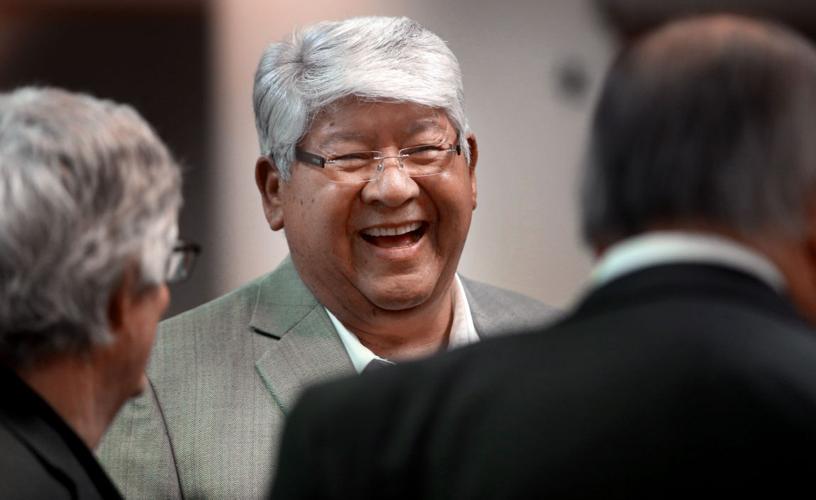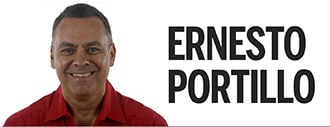When Pat Corella got his first job just out of high school, it was as a library page. He reshelved books at the old Carnegie library downtown.
“It was something I could do,” he recounted as his response to being asked if he was up to the task.
“I didn’t care. I needed a job,” Corella said.
As it turned out, he cared enough about the library’s books, services and the vital role it plays to stay on for 50 years.
Until relatively recently, library users relied on the card catalog to locate books, and librarians manually stamped the due date on the inside page of books and used typewriters. Today, of course, the library system is computerized and libraries have evolved into more than repositories of books and other reading materials.
With five decades behind him, Corella retires this week from his job as deputy director for the Pima Public Library system, overseeing operating budgets and capital improvements, and working with more than 500 employees in 27 libraries.
During his years at the library, Corella has held nine positions and worked under eight directors. And while he held administrative/financial posts, 19 libraries were opened and six remodeled.
Much has changed for public libraries, and more changes are coming, said Corella, who called himself “a dinosaur.”
“What kept me here,” he said, “is that I considered the library an educational institution.”
Technology, no question, will continue to be a growing and critical part of the public library system, said Corella, but good old-fashioned books are not going away.
“No matter what,” said Corella, sitting in his fourth-floor office at the Joel D. Valdez Main Library on North Stone Avenue, several blocks from the old Carnegie library on South Sixth Avenue that now houses the Children’s Museum Tucson.
Corella’s official final day is Nov. 26, 50 years to the day he started as a page.
Library work was not in his future when Corella was at Pueblo High School.
The Tucson native, the middle of six children, spent his summers with his family harvesting California crops. He was in elementary school when his family began making the seasonal trips, which continued well into his high school years. For several years, Corella returned to Tucson alone while the family remained in California to finish the picking season.
Corella graduated from Pueblo in 1965 and that year started at the library. He shelved books, he worked in circulation, he was an equipment operator. But the heavy lifting began five years later in 1970 when Corella entered the University of Arizona as a full-time student, majoring in government and public administration.
He was married, and he and his wife, Gloria, had a son. She worked and Corella continued working at the library while he pushed through his studies. He earned his bachelor’s degree in less than four years.
Then came the bookmobile.
It was his job to drive the bookmobile to areas in the city and county where there were no library services, from Silver Bell in the north to Sells on the Tohono O’odham Nation to Arivaca on the road to Nogales. The experience left an impression on Corella.
Library services needed to be extended to all areas and to all the communities in the Tucson area. And in turn, “you always hold hope that this small experience will motivate them to visit other full-service libraries in town,” he said.
By the late 1970s, Corella joined the administrative staff as the assistant to the director. Corella never lost sight of his core mission: providing the best library services possible in the face of political indifference and struggling finances.
Libraries are not seen as critical services — nor are they mandated — like streets and public safety. But only the most tightfisted and myopic person would argue that libraries are unnecessary.
Today’s libraries provide educational and literacy programs for adults and children. They provide computers to people who can’t afford them and after-school tutoring for students. They have meeting rooms, they host lectures and they exhibit art.
In Tucson, a public health nurse works in the main library to tend to patrons, who are often homeless.
Corella has great admiration for librarians, who often double as social workers.
“They knock themselves out,” he said. “They’re always willing to help.”
He leaves the library with a stack of books at home to read and with the confidence that he had a hand in the library’s growth, helping guide it through thick and thin.
And he leaves with the knowledge that his first job turned into a lifetime of public service for a valuable community asset.





